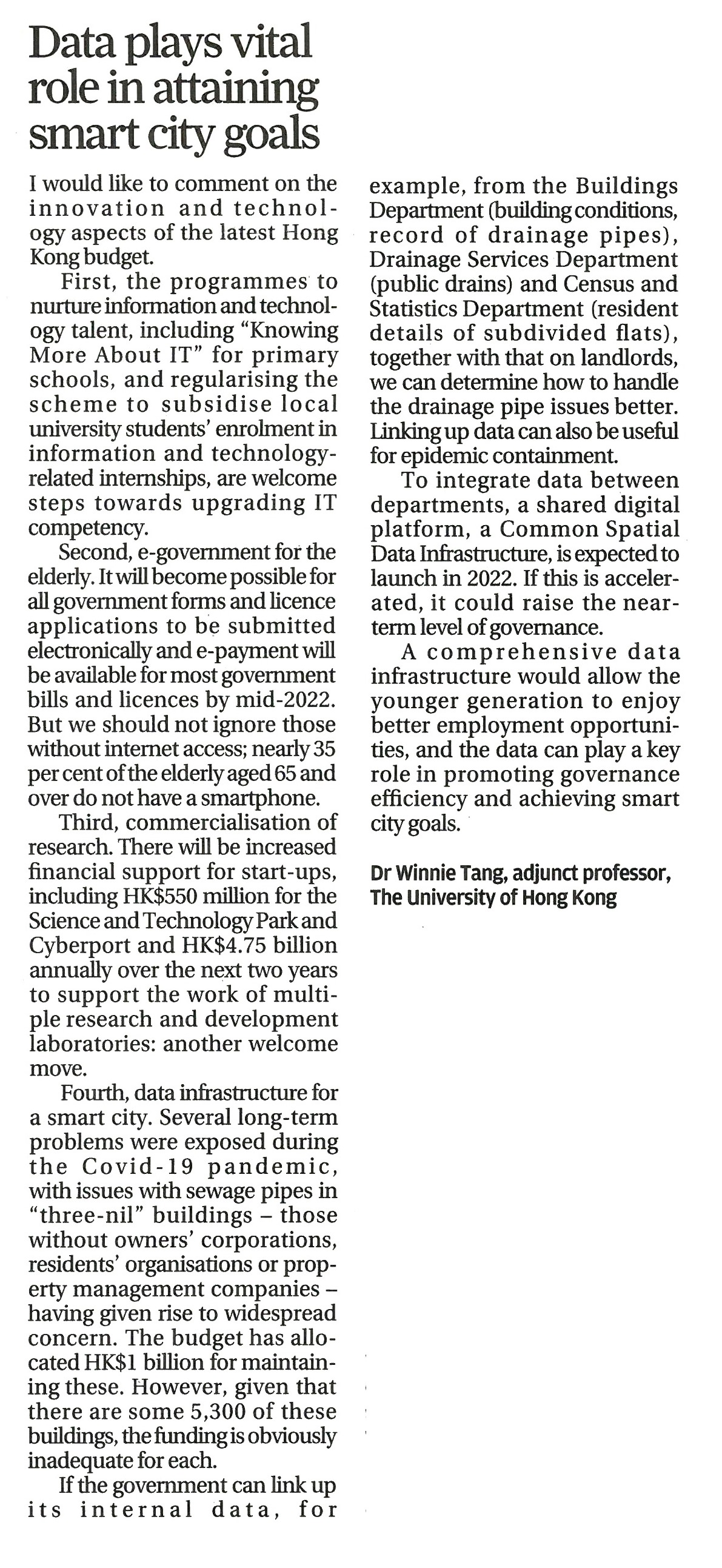網上版請按此

Data plays vital role in attaining smart city goals
I would like to comment on the innovation and technology aspects of the latest Hong Kong budget.
First, the programmes to nurture information and technology talent, including "Knowing More About IT" for primary schools, and regularising the scheme to subsidiselocal university students' enrolment in information and technology-related internships, are welcome steps towards upgrading IT competency.
Second, e-government for the elderly. It will become possible for all government forms and licence applications to be submitted electronically and e-payment will be available for most government bills and licences by mid-2022. But we should not ignore those without internet access; nearly 35 per cent of the elderly aged 65 and over do not have a smartphone.
Third, commercialisation of research. There will be increased financial support for start-ups, including HK$550 million for the Science and Technology Park and Cyberport and HK$4.75 billion annually over the next two years to support the work of multiple research and development laboratories: another welcome move.
Fourth, data infrastructure for a smart city. Several long-term problems were exposed during the Covid-19 pandemic, with issues with sewage pipes in "three-nil" buildings – those without owners' corporations, residents' organisations or property management companies – having given rise to widespread concern. The budget has allocated HK$1 billion for maintaining these. However, given that therearesome5,300of these buildings, the funding is obviously inadequate for each.
If the government can link up its internal data, for example, from the Buildings Department(building conditions, record of drainage pipes), Drainage Services Department (public drains) and Census and Statistics Department (resident details of subdivided flats), together with that on landlords, we can determine how to handle the drainage pipe issues better. Linking updata can also be useful for epidemic containment.
To integrate data between departments, a shared digital platform, a Common Spatial Data Infrastructure, is expected to launch in 2022. If this is accelerated,it could raise the near-term level of governance.
A comprehensive data infrastructure would allow the younger generation to enjoy better employment opportunities, and the data can play akey rolein promoting governance efficiency and achieving smart city goals.
Dr. Winnie Tang
Adjunct Professor, Department of Computer Science, Faculty of Engineering; Department of Geography, Faculty of Social Sciences; and Faculty of Architecture, The University of Hong Kong